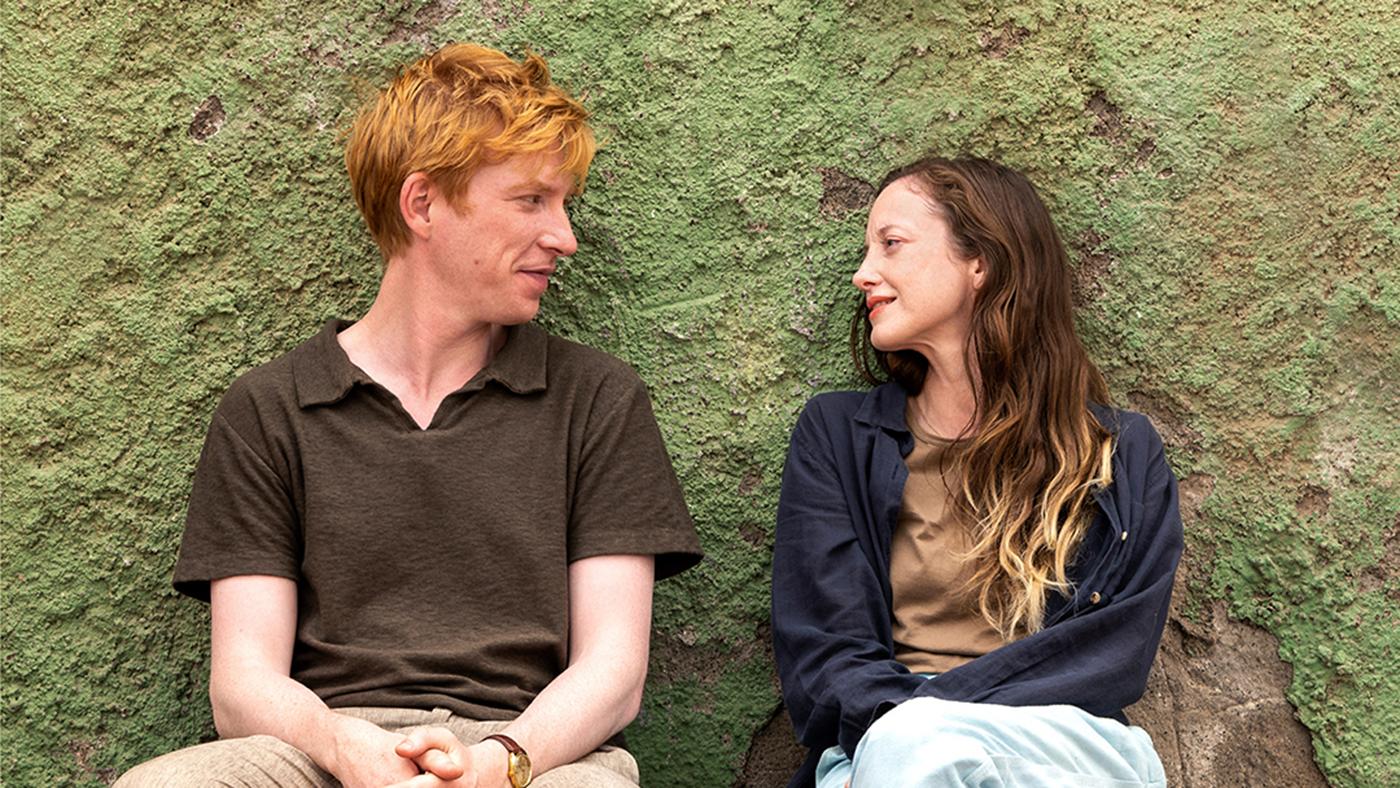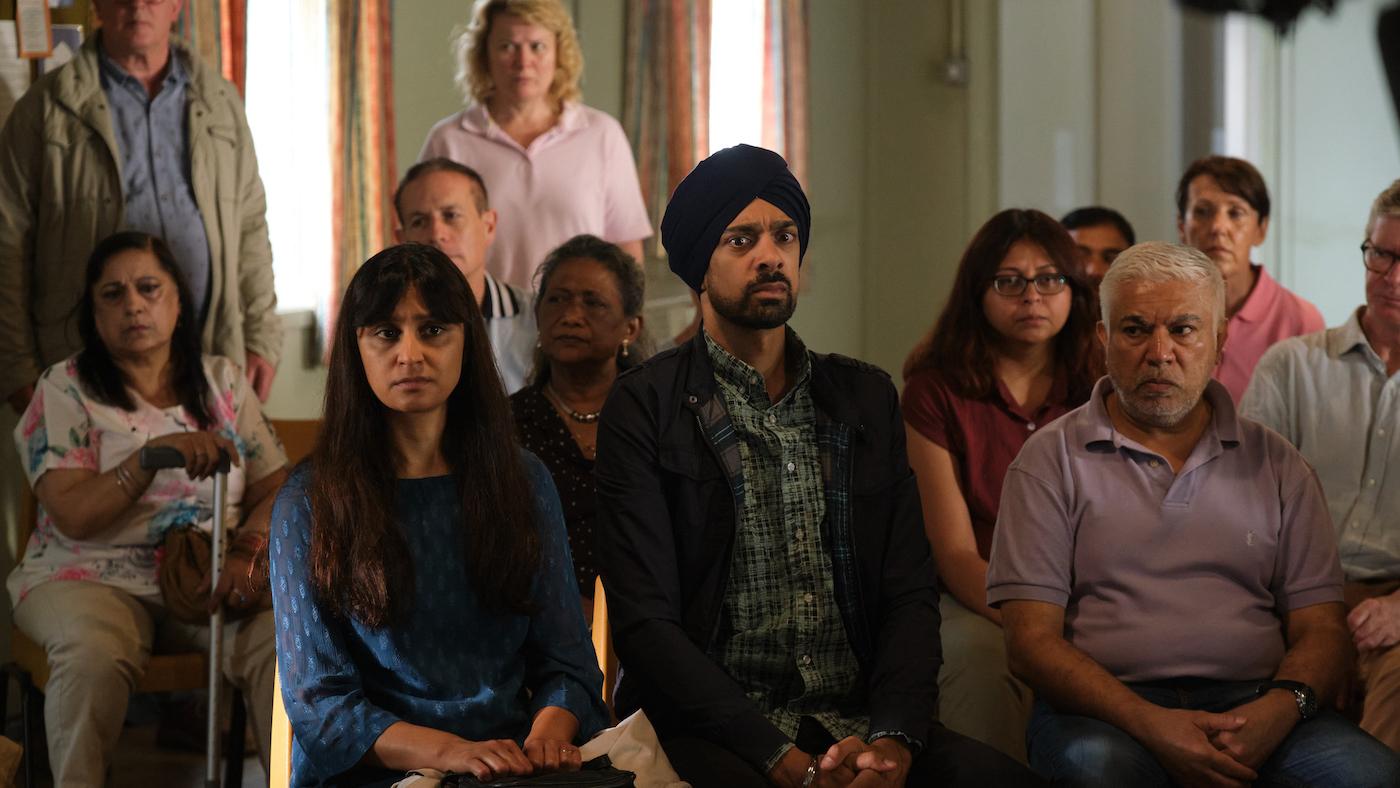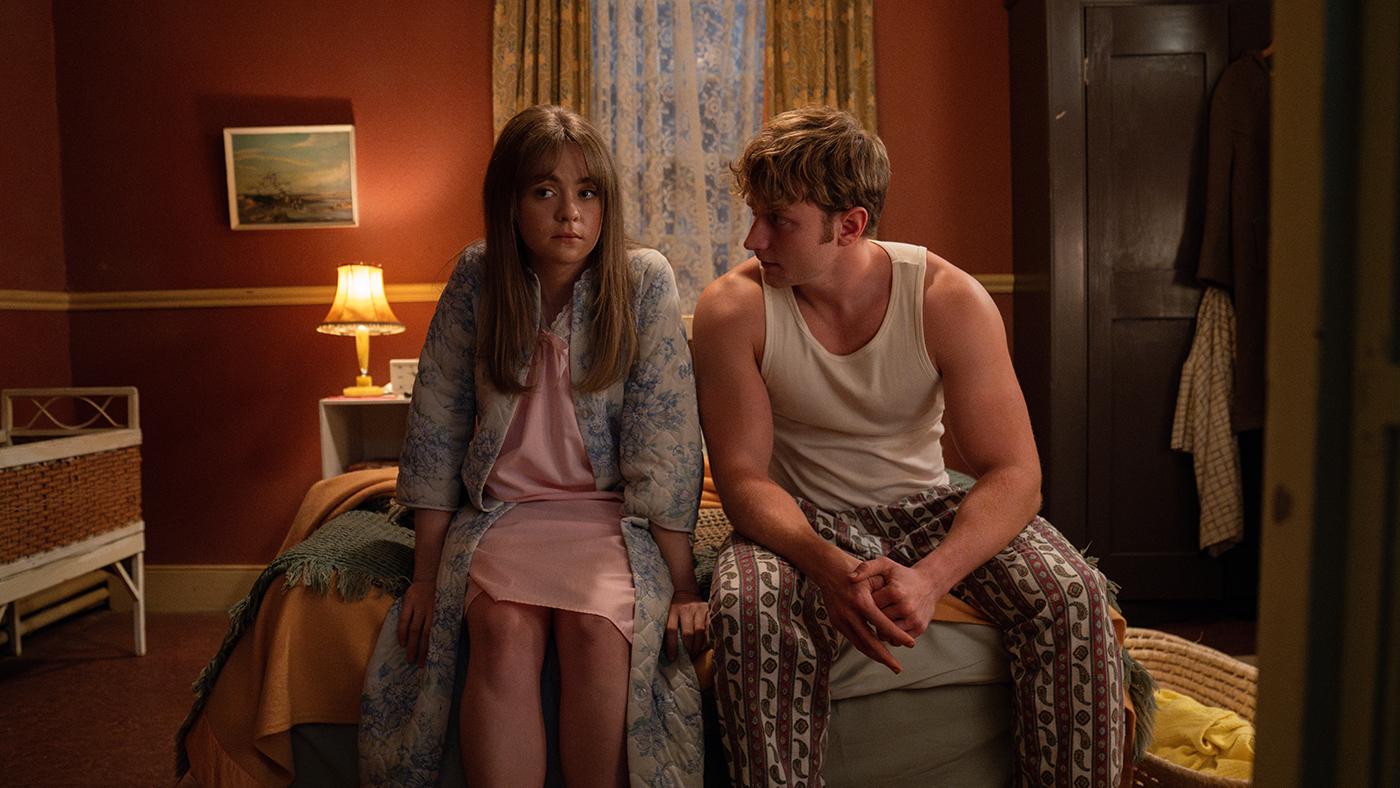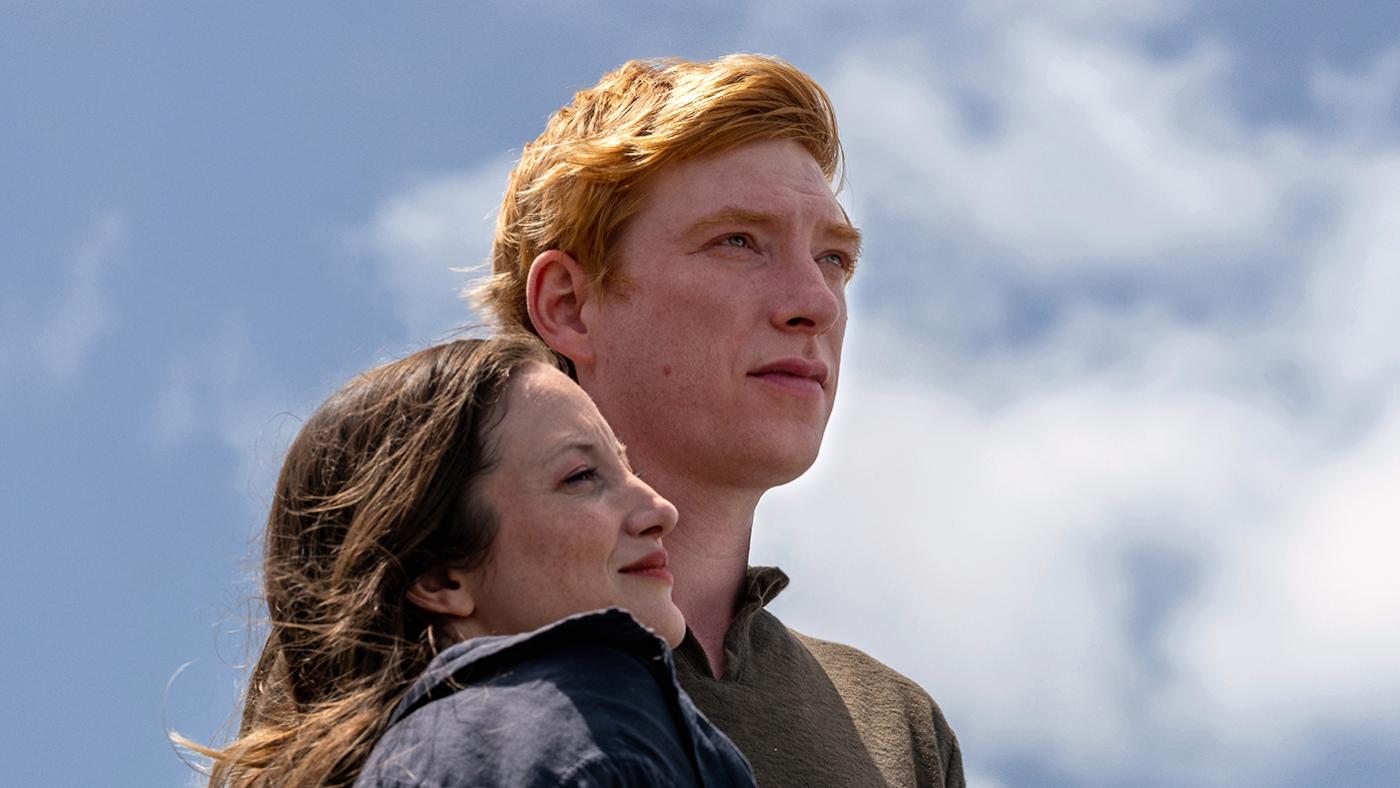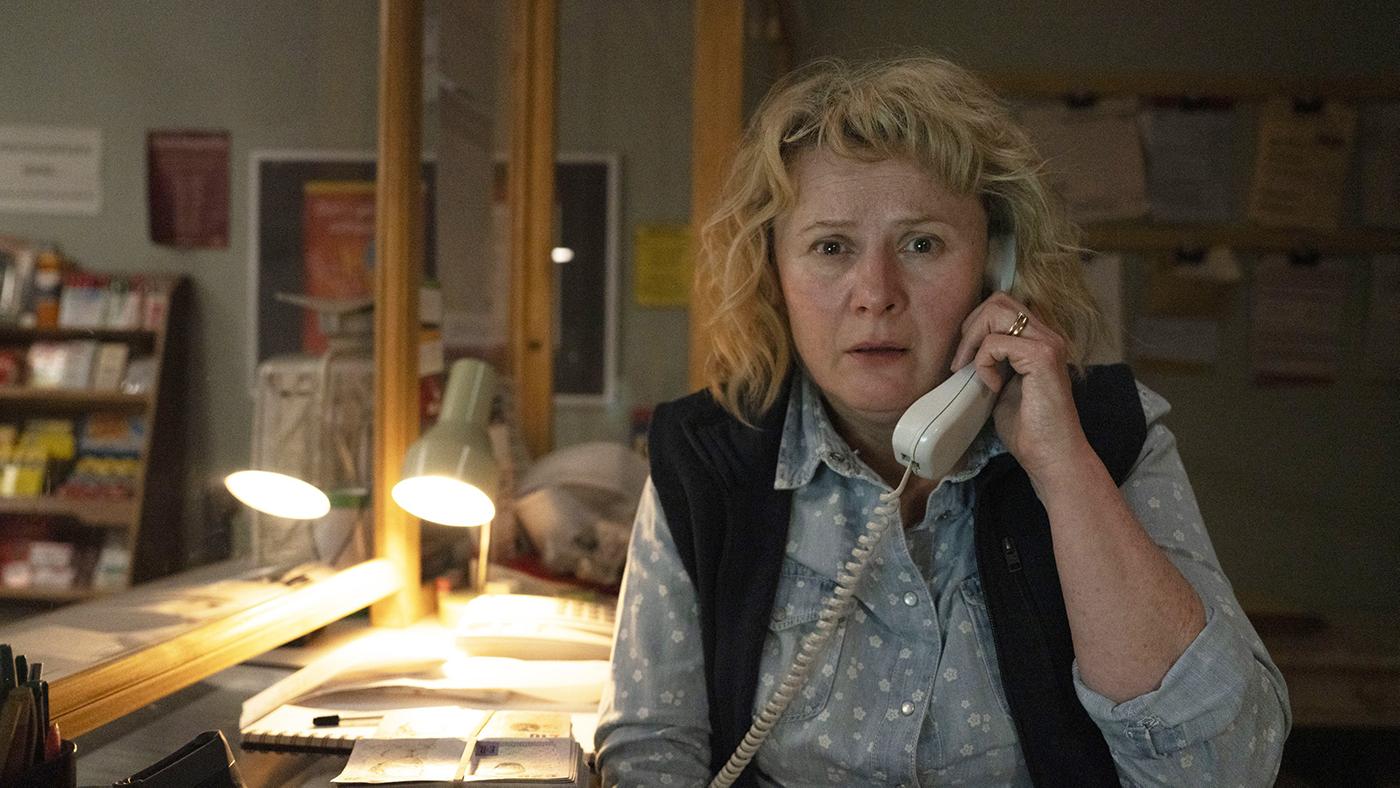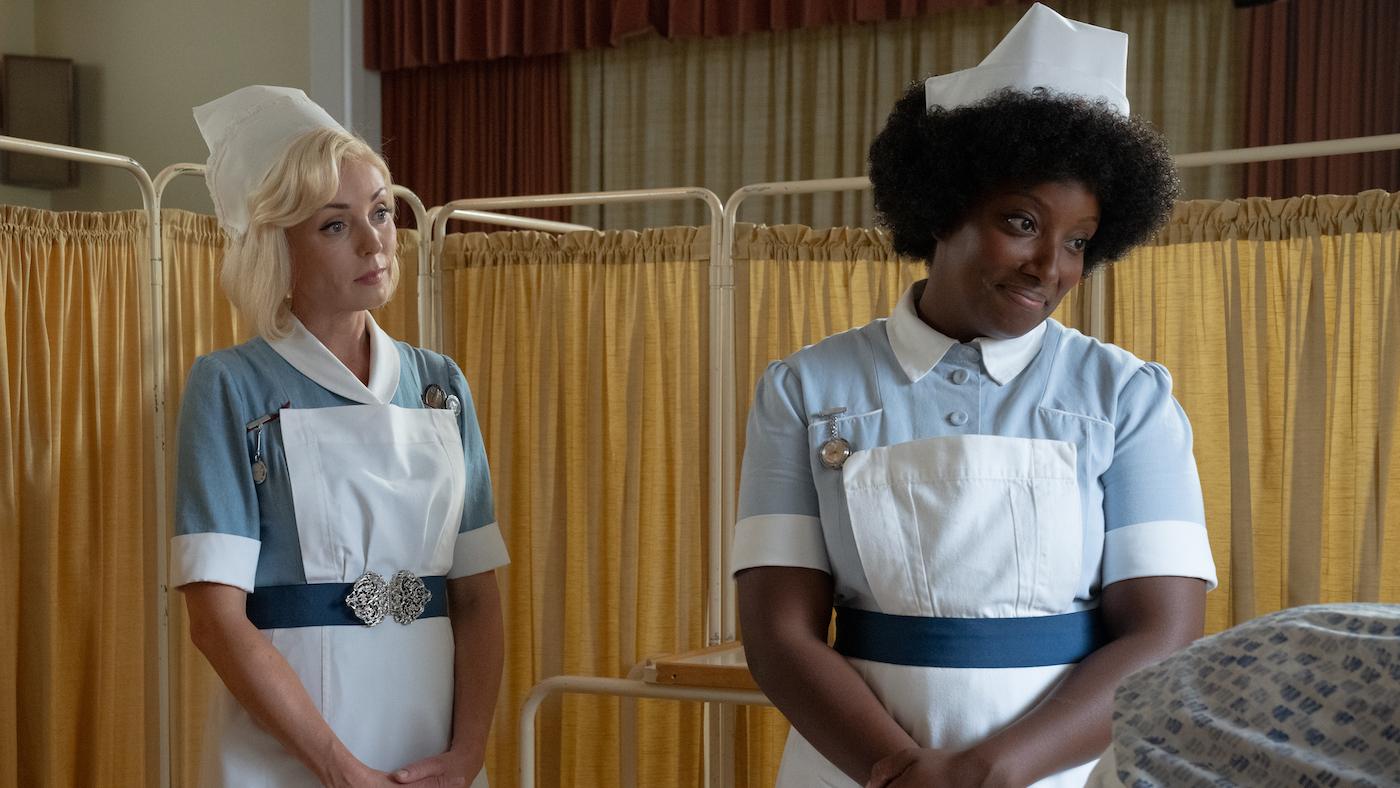'Poldark' Recap: Season 3 Episode 7
Julia Maish
November 12, 2017
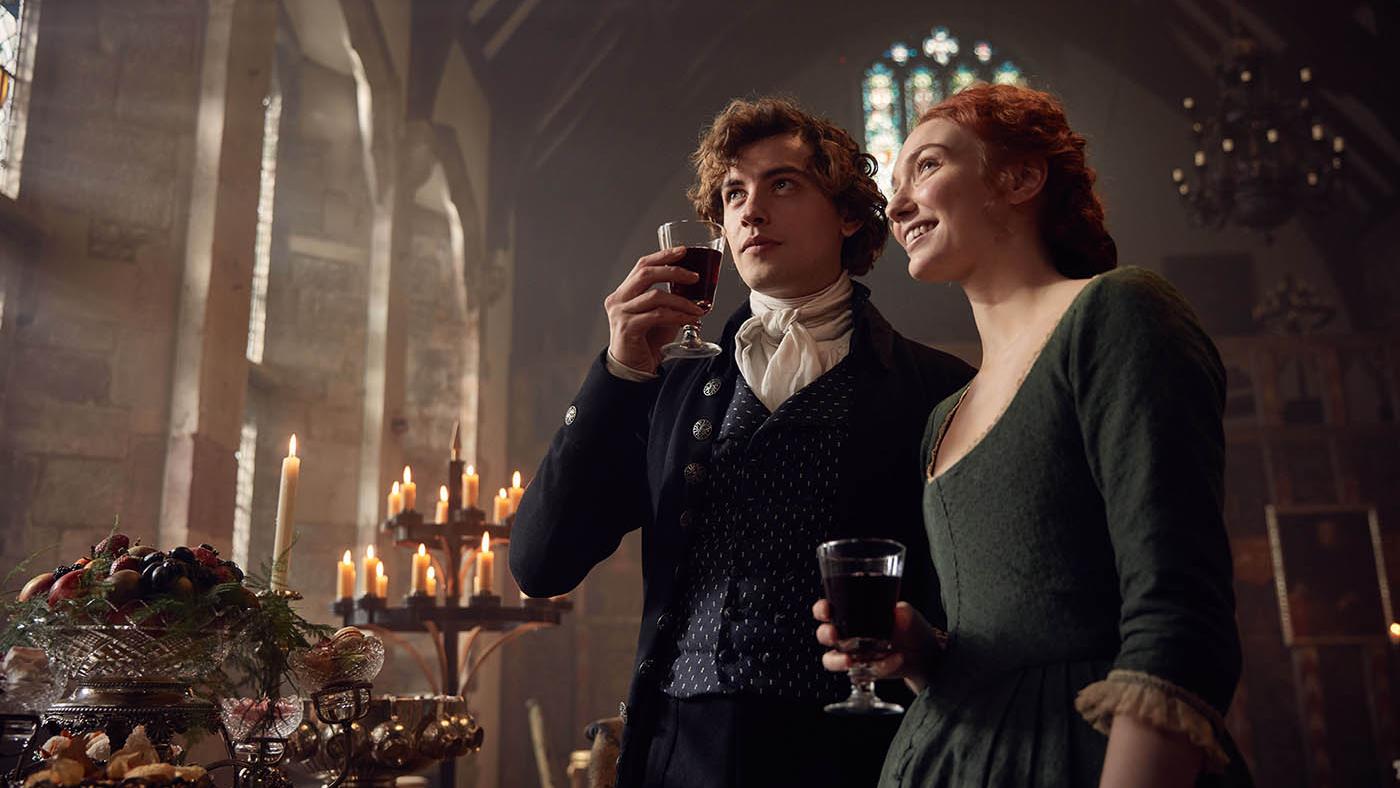
Poldark airs Sundays at 8:00 pm and is available to stream. Read our recaps of the previous and following episodes.
It is a few weeks later. Ross and Demelza are visiting Agatha’s grave, which is marked only by a makeshift wooden cross. Demelza leaves flowers as Ross vows that Agatha will have a headstone.
George is in his study, pointedly ignoring Elizabeth and Valentine. “What is my offense, George?” she demands. She had objected to Agatha’s lack of a funeral, but why take it out on Valentine? Coldly, he informs her that after the election he will go to London, and leaves the house. Dwight and Caroline are surprised when he suddenly arrives at Killewarren to grill Dwight about the circumstances of Valentine’s birth. Was he really an eight-month baby? Dwight can’t tell him; in the 1790s, there was no surefire way to determine an infant’s gestation. Later that afternoon at tea, Elizabeth learns from Caroline of George’s visit. Caroline wasn’t told why he came, but Elizabeth is suspicious.
Ross arrives at his mine to find more than a dozen cold and hungry people waiting – George has cut wages at the other mines, and they are desperate for work. Ross, always a soft touch when it comes to the poor, retorts to Zacky that it will be cheaper to employ them than to bury their starved corpses.
Osborne is preaching purity and self-denial from his pulpit, with Rowella and a very pregnant Morwenna in attendance. Morwenna’s thoughts are elsewhere, but Rowella gives him her full attention. Osborne notices. Later that day, he’s wolfing down cakes while Dwight reports that he has just examined Morwenna – Osborne must immediately forgo relations with her. Osborne is outraged – how dare he? Firmly, Dwight lays it out: Osborne has a “substantial physique” and mustn’t risk crushing the fetus. Rowella meanders in as Dwight continues, “As a man of God, abstinence can surely be no hardship.” Eyeing Rowella, Osborne turns on a dime. “Not in the least, sir.”
On the bluff, Demelza pulls out Armitage’s well-worn sketch of her. Decisively, she crumples it, tossing it into the surf below. At Nampara, she finds Armitage himself, bearing an exotic flowering plant. They are laughing together when Ross returns. They have a friendly exchange, but later, Ross observes that Armitage lives in a dream; nevertheless, Demelza points out, he is very real. “I will rely on your wonderful common sense to remember that,” he says condescendingly. This does not sit well with Demelza, and after he leaves, Prudie advises a roll in the hay with Armitage. Demelza smiles, but…
That night, Morwenna having retired, Osborne is writing a sermon when he hears a sound in the next room. Avidly, he spies on a half-dressed Rowella through a crack in the door.
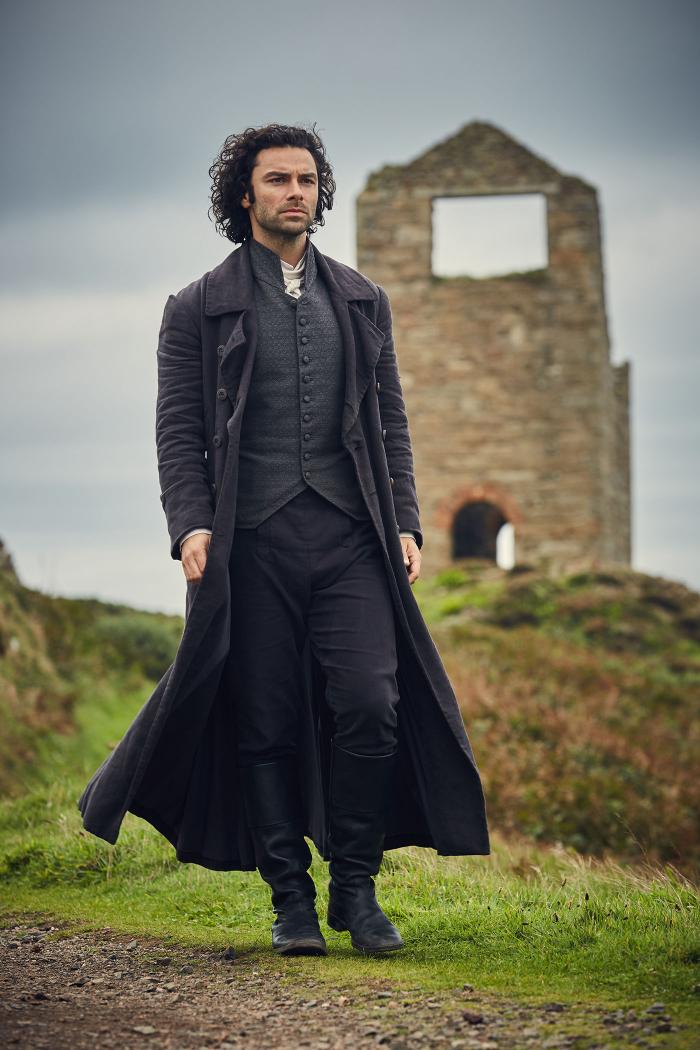 Photo: Robert Viglasky/Mammoth Screen for BBC and MASTERPIECEThe next day at the smithy, Drake is absorbed in his work as Sam watches, hoping Drake will forget Morwenna and find a nice, pure Methodist wife. On cue, the bawdy, sensual, religion-averse Emma wanders in. Despite himself, Sam is attracted, and Emma knows it.
Photo: Robert Viglasky/Mammoth Screen for BBC and MASTERPIECEThe next day at the smithy, Drake is absorbed in his work as Sam watches, hoping Drake will forget Morwenna and find a nice, pure Methodist wife. On cue, the bawdy, sensual, religion-averse Emma wanders in. Despite himself, Sam is attracted, and Emma knows it.
George and Cary notify Lord Falmouth that, rather than join with the other burgesses to vote for Falmouth’s chosen MP candidate, George himself will be running in opposition. Maliciously, Falmouth informs him that the burgesses all owe him favors, and George’s attempt at a “revolution” will fail. On Election Day, Falmouth shamelessly intimidates and extorts his burgesses as Sir Francis watches in disgust. It’s a dilemma – a corrupt power monger’s puppet as MP, or George?
A terrified Morwenna goes into labor, and Dwight is concerned – mother and child are both in danger. Overheard by Rowella, Osborne prays to be sent a “suitable replacement” once his unsatisfactory current wife has died. Rowella, taking care to school her expression, announces that he has a son. As he loudly crows about the baby’s size, a disgusted Dwight admonishes him that Morwenna is sleeping. Osborne is astonished – and disappointed – that she has survived.
Cut to Truro, where George has inexplicably won the election, to Falmouth’s fury. At the pub, Ross and Demelza are stunned by the news. Entering with Sir Francis, George lords his triumph over Ross, viciously baiting him. Sir Francis, perhaps already realizing he has backed the wrong horse, has to remind George that he is a gentleman. Ross’s expression suggests that George is anything but.
Postpartum depression has set in for Morwenna. Meanwhile, Osborne happens upon Rowella conversing with a young librarian, Arthur Solway, who has delivered some books. Osborne disapproves of libraries (and presumably, this man chatting up Rowella). Brusquely, he orders Solway to leave.
George, still fuming over his exchange with Ross, icily informs Elizabeth he will be going to London alone. The next day, she overhears George ordering Tom Harry to keep tabs on her. At least Elizabeth can welcome back Geoffrey Charles, who is thrilled that his hated stepfather will be absent.
Ross and Demelza are invited by Falmouth to a farewell party for Armitage – he is returning to sea. Ross suspects Falmouth has another purpose in mind; Demelza thinks the same may be true of Armitage. As she debates what to wear, Ross tells her there’s no need to get “fligged up.” Demelza will, of course.
Morwenna, more downcast than usual (and that’s saying a lot), confides to Rowella that Osborne forced himself on her that morning. For Osborne’s benefit, Rowella loudly promises to return after her bath – she knows he will be watching. But it backfires – rather than yield to temptation with Rowella, he rapes Morwenna again. The next day, they are visited by Geoffrey Charles and Elizabeth, who is disturbed by Morwenna’s pallor and fragility. When Osborne tries to dismiss Morwenna’s complaint, Elizabeth issues an ultimatum: if he doesn’t send for the doctor, she will. After the examination, an incredulous and angry Dwight again orders Osborne to cease relations with Morwenna immediately. Glancing at Rowella, Osborne grudgingly agrees, for now.
In the church, Ross unexpectedly encounters Elizabeth, there to visit Agatha’s grave. It’s the first time they’ve been alone together in many months. They discuss George’s suspicion that Valentine is really Ross’s child; Elizabeth is sure he got the idea from Agatha. Ross advises her to give George another child – perhaps if she could somehow contrive another “premature” baby, George would assume that this is normal for Elizabeth. Having cleared the air, Ross gives Elizabeth a friendly kiss. But they are seen by Prudie, outside in the cemetery.
At Nampara, in response to Demelza’s question about his whereabouts that day, Ross confesses that he met Elizabeth – he kissed her and still loves her but not as he did in the past; he feels only guilt about the wrong he did her. He has changed, he tells Demelza, because of her. Just when we think he is finally displaying some sensitivity, Demelza asks her question again, and we realize the previous exchange was all in Ross’s mind. This time, Ross lies…and Demelza senses it.
That evening, with that lie between them, they arrive at Lord Falmouth’s party with Dwight and Caroline, and are greeted by Armitage, who steers Demelza away when Ross is summoned by Falmouth. Caroline suspects what Armitage is up to, but Dwight is certain he’s wasting his time.
Armitage tells Demelza he fears “losing” her when he goes to sea. “How can you lose what you’ve never had?” she asks, adding that the “ideal” he loves is not really her. He moves closer, but Demelza gently retreats.
As Ross suspected he would, Falmouth proposes that he and Ross join forces against George and Sir Francis. Ross remarks that the two don’t have as much in common as it appears, and that the only way to obstruct George would be to align with Sir Francis, to whose egalitarian ideas the elitist Falmouth is vehemently opposed. Disappointed, Falmouth accuses Ross of siding with the revolutionaries. On the contrary – he is against “bloodshed and lawlessness,” but is all in on “liberty, equality, and fraternity.” Knowing he might as well be speaking Chinese to Falmouth, Ross goes off in search of Demelza.
He finds her in the drawing room, plaintively singing a folk song in front of an audience, including a rapt Armitage, to whom she is clearly trying to send a “thanks, but no thanks” message. Grimly, Ross takes in Demelza watching Armitage watching her, and responds with a slow clap as the song ends.
At the vicarage, Rowella furtively delivers a small package to Morwenna, who hides it from Osborne. Upstairs, she discovers it’s a gift from Drake: a handmade Madonna and child pendant. She weeps with joy as an unseen Drake, outside the house, gazes up at her window, Romeo-style.
Rowella and Osborne are now left alone. She ostentatiously retires to her room, he follows her, and she pushes him into a chair, perching on his lap. Osborne is putty in her hands.
That night at Nampara, Demelza reminds Ross that they promised no more secrets. She wishes she could be two people, she tells him – one who is a faithful wife and mother, and one who could “love another, just for a day.” Would this “another” be content with that? Ross asks. Would she? “I think so,” answers Demelza, for she knows whom she truly loves. He never doubted it, Ross admits, until he saw the way she looked at Armitage – the same way she once looked at him. Demelza asks him to be patient with her, as she has been patient with him.
Ross probably had that coming.

